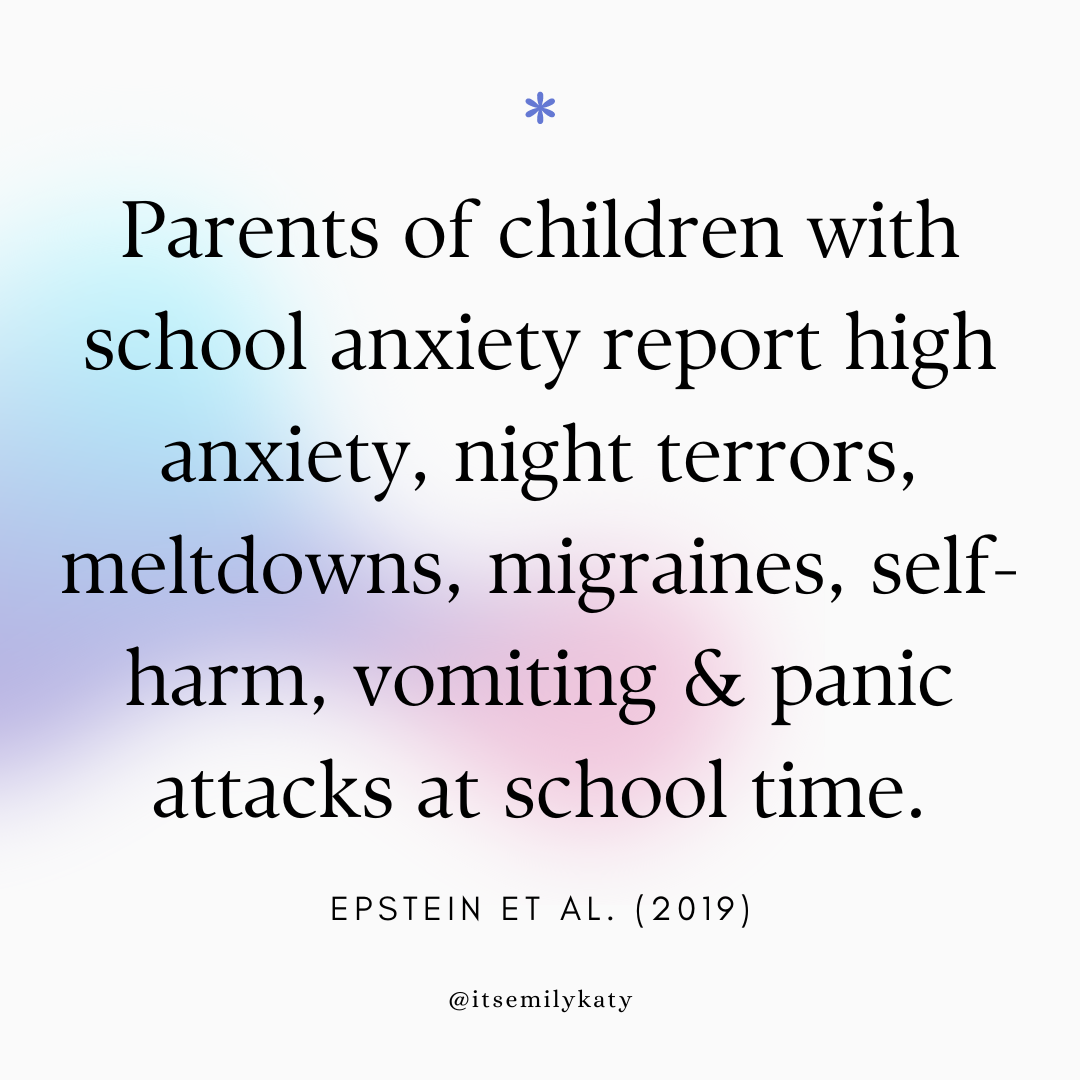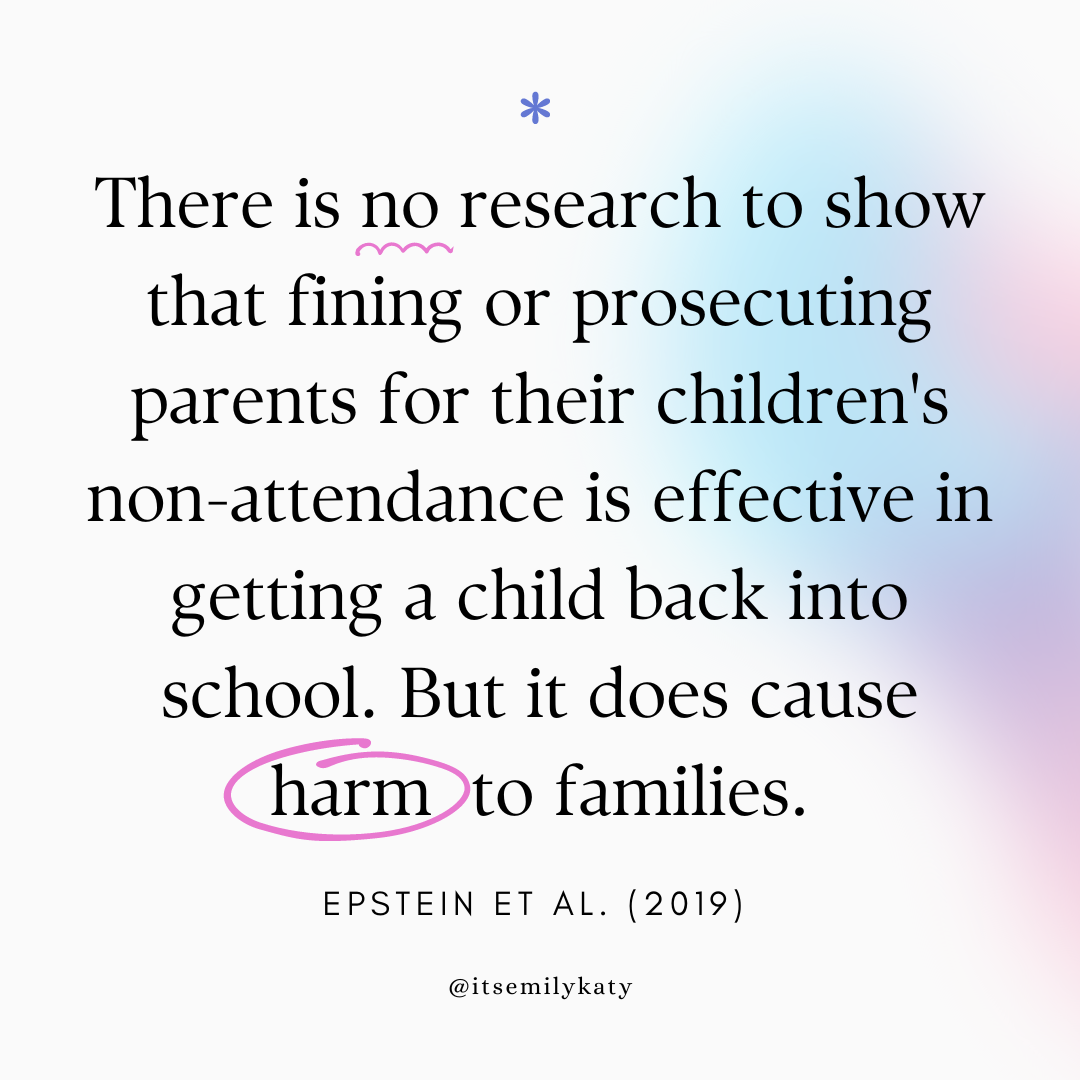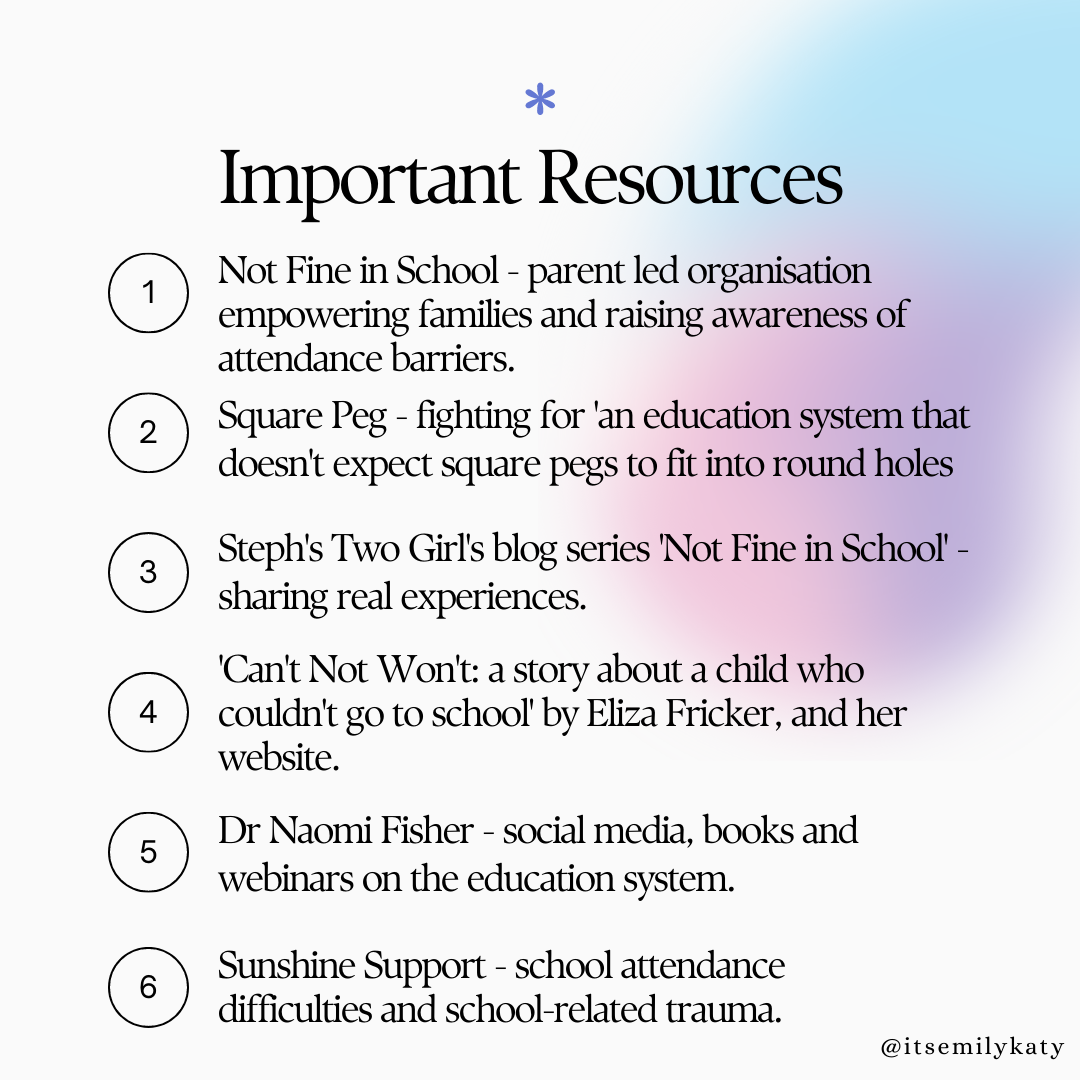Emotionally-Based School Avoidance in Neurodivergent Children and The Discriminatory System of Prosecution
I was described as a child on the verge of school refusal. I ran away from school multiple times. I would hide in the toilets and have daily panic attacks. I would refuse to go to lessons, sitting in the library instead. The anxiety I felt every single day was monumental. It led to self-harm, depression and years of burnout. But, I was lucky. I had a lovely small group of friends. I was very academic and passed tests easily, so school couldn’t use this as a reason for me to be in lessons. I had supportive relationships with several teachers. And I got through. But for many children and families, the consequences of school-based anxiety are much more severe.
Children with Special Educational Needs (SEN) are 50% more likely to struggle with school attendance, with 31% of autistic students persistently absent (Office for National Statistics, 2021; Ambitious about Autism, 2022). And, in one sample of children with school attendance difficulties, 92.1% were neurodivergent, with 83.4% being autistic (Connolly & Mullally, 2022).
So, we know that the majority of children struggling with school attendance are autistic or otherwise neurodivergent.
It is not that they WON’T go to school and ‘refuse’. It is that they CAN’T and are struggling or traumatised from their school experiences (Wadlow, 2020). That is why it is referred to as ‘Emotionally-Based School Avoidance’ instead of ‘school refusal’, because ‘refusal’ implies an active choice.
There are many reasons why school can be an overwhelming, anxiety-inducing and traumatic place for neurodivergent children. These are just a few of the common reasons that Not Fine in School highlight on their website.
Two years ago I wrote a blog post titled ‘Do Any Autistic Children Get Through School Untraumatised’. You can read it here. Spoiler - my answer was no, which is incredibly sad, but unfortunately the state of our education system.
Parents report high anxiety, night terrors, meltdowns, migraines, self-harm, vomiting and panic attacks every morning at school time (Epstein et al. 2019). I can certainly relate to this. The fact that parents are actively encouraged to push their child through this pain and anxiety and prosecuted or seen as neglectful if they don’t is disgusting. Many of them receive repeated fines and threats of prison. Often parents feel forced to un-enroll their child from school as they feel they have no other choice (Not Fine in School, 2022 & Epstein et al. 2019).
The British Psychological Society (2017) stated that fines and prosecution is usually unlikely to have any effect on persistent absentees. There is NO research to show that fining or prosecuting parents for their child’s non-attendance is effective in getting a child back into school. But it does cause significant harm and stress to families, resulting in many parents become unwell. (Epstein et al. 2019). So WHY is the government putting families through such stress? The Schools Bill 2022 gave further powers to fine and prosecute parents, when what they should be doing is nurturing and providing extra provisions, support and funding.
We should all be shouting about this. It is overwhelmingly a disability and SEND issue, because the majority of affected children are autistic or otherwise neurodivergent.
Attitudes, attendance policies, SEND policies, academic pressures, damaging environments and cultures of intimidation urgently need to change, and we need better training, CAMHS and SEND funding and provision.
These children and families are being failed. We need a different system.
Essential Resources:
Not Fine in School - parent led organisation empowering families and raising awareness of attendance barriers.
Square Peg - fighting for ‘an education system that doesn’t expect square pegs to fit into round holes’.
Steph’s Two Girls blog series ‘Not Fine in School’ - sharing real experiences.
‘Can’t Not Won’t: a story about a child who couldn’t go to school’ by Eliza Fricker, and her website.
Dr Naomi Fisher - social media, books and webinars on the education system.
Sunshine Support - school attendance difficulties and school-related trauma.
References:
Ambitious about Autism. (2022). Compelling attendance won’t result in more autistic pupils in school. https://www.ambitiousaboutautism.org.uk/about-us/media-centre/news/compelling-attendance-wont-result-more-autistic-pupils-school
Connolly, S. & Mullally, S. (2022). School distress in UK school children: the parental lived experience. https://www.medrxiv.org/content/medrxiv/early/2023/02/17/2023.02.16.23286034.full.pdf
Epstein, R., Brown, G. & O’Flynn, S. (2019). Prosecuting parents for truancy: who pays the price? Coventry University. http://covrj.uk/prosecuting-parents/
Green. A. (2022). What can we learn from parents and caregivers of school-aged children to inform current Emotionally Based School Avoidance (EBSA) intervention approaches in England? https://www.pdasociety.org.uk/resources/what-can-be-learnt-from-parents-about-school-avoidance-in-autistic-pupils/
Not Fine in School. (2022). Research. https://notfineinschool.co.uk/research
Office for National Statistics (ONS). (2021). Special Educational Needs in England. https://explore-education-statistics.service.gov.uk/find-statistics/special-educational-needs-inengland/2020-21
Wadlow, C. (2020). School attendance difficulties and school-related trauma. https://www.sunshine-support.org/school-attendance-difficulties-and-school-related-trauma










